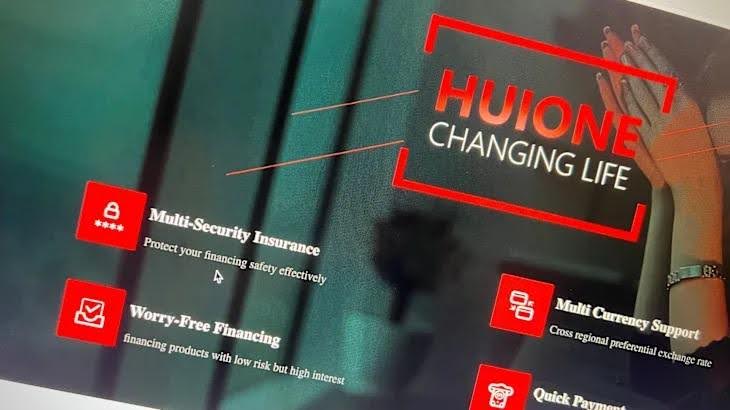Key Takeaways:
FinCEN designates Cambodia-based Huione Group as a main cash laundering concern.Huione is accused of enabling North Korean hackers and main crypto scams like pig butchering.The U.S. proposes banning monetary establishments from working with Huione to dam illicit crypto flows.
The U.S. Treasury’s Monetary Crimes Enforcement Community (FinCEN) is taking unprecedented steps to sever Huione Group, a Cambodia-based monetary entity, from the U.S. monetary system. The transfer comes amid mounting proof of Huione’s essential position in laundering billions in cryptocurrency, typically linked to North Korean hackers and transnational rip-off networks.
Learn Extra: Landmark Laws to Goal Crypto Fraud in New York State

FinCEN Invokes Part 311 Towards Huione Group
FinCEN revealed a discover of proposed rulemaking underneath Part 311 of the USA PATRIOT Act on Could 1, 2025, designating Huione Group as a important cash laundering difficulty. The designation permits the U.S. to disclaim Huione entry to payable-through and correspondent accounts within the U.S., so isolating the group from worldwide banking methods.
In line with FinCEN’s investigation, Huione has laundered over $4 billion in illicit funds between August 2021 and January 2025. This contains:
$37 million in crypto property from North Korean cyber heists$36 million from crypto funding scams$300 million from different cyber-related fraud schemes
The motion goals to dismantle a monetary hub that, as Treasury Secretary Scott Bessent described, has develop into “{the marketplace} of alternative for malicious cyber actors just like the DPRK and prison syndicates.”


How Huione Facilitates Crypto Crime
A Community Designed for Laundering Digital Belongings
FinCEN’s findings reveal that Huione Group contains a number of interlinked entities, every serving a novel position in facilitating cybercrime:
Huione Pay PLC – a fiat and crypto fee platformHuione Crypto – a digital asset service supplier (VASP)Haowang Assure – a web based market providing instruments and providers tailor-made for cyber scams
Collectively, these entities present end-to-end providers for criminals in search of to scrub soiled crypto. Their choices embrace all the pieces from counterfeit documentation to real-time cash transfers—completely suited to laundering proceeds from cyber heists and romance-based crypto scams, generally often known as “pig butchering.”
Learn Extra: Senator Durbin Introduces New Invoice to Fight Crypto ATM Fraud
North Korea’s Position within the Crypto Laundering Ecosystem
Ties to Lazarus Group and State-Sponsored Heists
Huione’s hyperlinks to North Korea’s Lazarus Group are notably alarming to U.S. officers. Lazarus has been accused of stealing billions in cryptocurrency to fund the DPRK’s weapons and cyber applications. FinCEN studies present Huione obtained over $150,000 in crypto from a pockets related to Lazarus as lately as final 12 months.
This connection is not only circumstantial. Elliptic, a blockchain analytics agency, estimates that Huione has facilitated as much as $24 billion in suspicious transactions—a lot of it involving wallets tied to sanctioned entities.
Stablecoin and Regulatory Evasion
In a troubling growth, Huione has launched its personal stablecoin, additional complicating efforts to hint illicit funds. FinCEN notes that the stablecoin, whose utilization stays opaque, doubtless permits sooner and extra nameless laundering of proceeds throughout borders.
The Huione Group’s providers lack primary regulatory safeguards. None of its elements had carried out or revealed anti-money laundering (AML) or know your buyer (KYC) protocols. The group even acknowledged its inner failures, admitting it didn’t detect DPRK-linked transactions inside its personal community.
The Implications for Crypto and International Enforcement
This proposed motion underscores rising U.S. efforts to crack down on cryptocurrency’s abuse by state-sponsored actors and prison syndicates. It additionally alerts a extra aggressive stance in leveraging Part 311 powers, as soon as reserved for conventional banking establishments, to focus on digital asset platforms and VASPs.


If finalized, the rule will prohibit U.S. banks from participating in any relationship with Huione, together with oblique dealings through intermediaries. This transfer might additionally immediate allied nations to take related motion, amplifying the monetary isolation of Huione and its shoppers.
For crypto buyers and establishments, the message is evident: regulatory companies are now not treating crypto-specific crimes as area of interest or low-priority. Any entity—even outdoors the U.S.—that facilitates crypto laundering dangers being lower off from the worldwide monetary system.
What Comes Subsequent
FinCEN’s proposal is at present open for public remark. If enacted, it can mark one of the vital sweeping crypto enforcement actions because the closure of mixers like Twister Money and Blender.io. Whereas Huione’s core person base could also be past U.S. jurisdiction, its reliance on U.S. greenback liquidity and worldwide correspondent banking leaves it weak.
In the end, this motion is not only about punishing Huione. It’s about signaling a broader shift towards proactive, preemptive crypto regulation, particularly the place digital property intersect with geopolitical threats and large-scale fraud.








